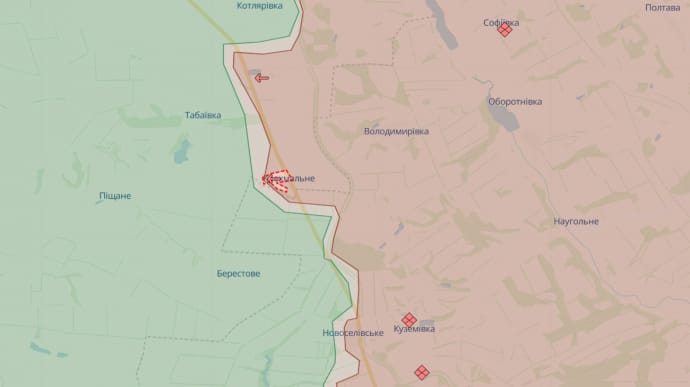Daily Flyer - January 21, 2024
A voice of Ukraine to the West

Russia deployed missiles to attack Kirovohrad Oblast, but civilian infrastructure was not affected
An explosion occurred in the city of Kropyvnytskyi in Kirovohrad Oblast following a warning from the military about an incoming missile. The Armed Forces of Ukraine had alerted the public about the potential use of ballistic weapons by the Russians, prompting air-raid warnings in several oblasts, including Kharkiv, Poltava, Dnipropetrovsk, Mykolaiv, Kherson, and Kirovohrad.
Subsequently, the Ukrainian Air Force reported a missile heading towards Kropyvnytskyi, and local media soon reported explosions in the city. While the authorities have not confirmed any strikes, the head of the Kirovohrad Oblast Military Administration stated that the region was under attack, but fortunately, there were no casualties and no damage to civilian facilities.
Ukrainian military official confirms retreat from village of Krokhmalne

The Ukrainian Ground Forces have confirmed their withdrawal from the village of Krokhmalne in Kharkiv Oblast. It is emphasized that this withdrawal does not pose a threat to neighboring units. According to Volodymyr Fito, the Head of the Public Relations Service of the Ukrainian Ground Forces, the soldiers left Krokhmalne and relocated to better-prepared positions.
Fito highlighted that Krokhmalne, with a population of 45 people before the war, had only a few houses, all of which were destroyed by the Russian aggressor. The goal was to save the lives of Ukrainian defenders by moving them to defensive lines. They are now holding the defense and preventing enemy advancement.
Fito emphasized that this withdrawal doesn't pose threats to neighboring units and suggested it's a temporary phenomenon, given the dynamic nature of the front line. The withdrawal occurred amid reports of Russian forces advancing along the Kupiansk-Svatove-Kreminna line and capturing Krokhmalne.
Ukraine's security services target Russian facilities in Tula, Smolensk and Oryol
Ukrainian security services continued their special explosive operations on the territory of the Russian Federation during the night of 20-21 January. According to sources, Defence Intelligence of Ukraine UAVs attacked Russian military facilities in Smolensk, Tula, and Oryol. One source mentioned that the planned work by the Main Intelligence Directorate is underway.
Additionally, another source in law enforcement revealed that the night attack on a sea terminal in the Russian Ust-Luga of Leningrad Oblast was a special operation by the Security Service of Ukraine. The attack caused a large fire, leading to the evacuation of Russian employees. The Ust-Luga Oil terminal processes fuel, with a significant portion directed to the Russian military. Reports from Russian media and local residents confirmed a powerful explosion and fire in Tula's Proletarsky district, near the Shcheglovsky Val plant, known for manufacturing the Pantsir-S air defense system.
Europe appears to have adjusted to living without Russian natural gas.
European nations grappling with recent transportation challenges in the Middle East have not witnessed a surge in gas prices, suggesting potential success in reducing dependence on Russian gas.
Source: Bloomberg
Details: Despite shipping challenges in the Red Sea prompting longer routes, the cost of Qatari gas for Europeans has not risen, and electricity prices have remained stable amid the crisis. Current basic European electricity prices are trading at under €30 per megawatt-hour, significantly lower than their 2022 peak levels.
This situation indicates a positive outcome and contrasts with the energy crisis of 2022, where rising energy bills and inflation were major concerns.
Europe's proactive preparations, including accumulating record gas volumes and utilizing renewable energy sources, have contributed to overcoming the crisis. Factors such as a mild winter and economic slowdown also played a role in reducing gas consumption needs in countries like Germany.
However, the unpredictability of a new energy policy focusing on liquefied gas and alternative sources poses challenges. Europeans are now more susceptible to external factors, including geopolitical realities impacting energy supplies.
Background:
EU member states still reliant on Russian gas should prepare for the cessation of Russian gas transit through Ukraine at the end of 2024, following the contract's expiration.
Vincent Clerc, CEO of shipping giant AP Møller-Maersk, warns that restoring the crucial trade route through the Red Sea may take months, posing economic and inflationary risks globally.
However, the unpredictability of a new energy policy focusing on liquefied gas and alternative sources poses challenges.

